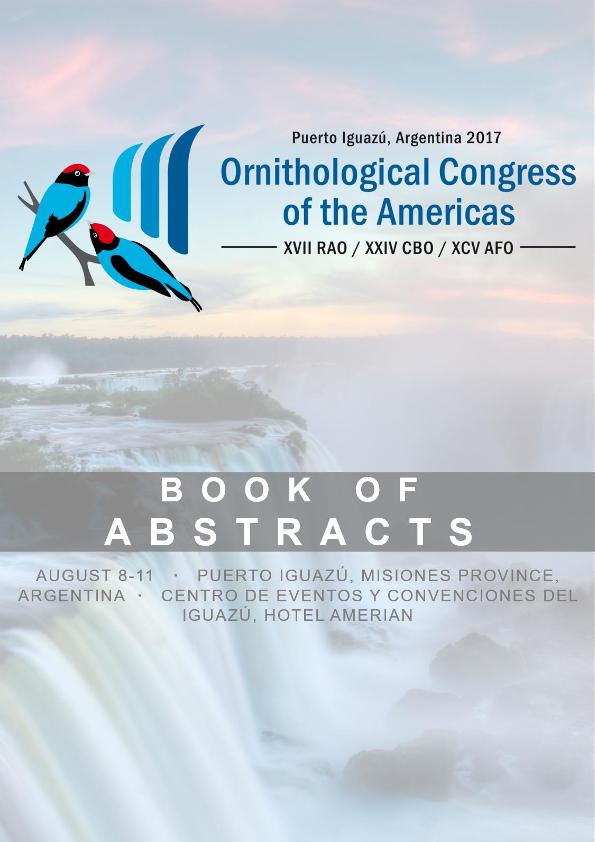Evento
Do farmers consider bird scavengers as a problem? Evaluation of the perceptions of different rural communities
Tipo del evento:
Congreso
Nombre del evento:
Ornithological Congress of the Americas
Fecha del evento:
08/08/2017
Institución Organizadora:
Association of Field Ornithologists;
Sociedade Brasileira de Ornitologia;
Aves Argentinas;
Título del Libro:
Ornithological Congress of the Americas: Book of abstracts
Editorial:
Association of Field Ornithologists
Idioma:
Inglés
Clasificación temática:
Resumen
The conflict between humans and potential predators of livestock exists since the domestication of livestock. The negative perception of some livestock producers about carnivorous mammals (for example pumas) is well known. However, studies on human perception about scavenger birds are scarce. Our aim is to take an ethnozoological approach on the knowledge and attitudes of Patagonian rural worker (indigenous and criollos farmers), to identify possible conflicts between bird scavengers (obligate and facultative) and agricultural production in northwestern Patagonia. Semi-structured interviews were conducted with people in three focus groups: the mapuche community, the criollo community (<500 cattle) and cattle ranches (> 500 cattle). Almost all of the interviewees indicated at least one species as harmful to livestock. Southern Caracara (Caracara plancus) and Black-chested buzzard eagle (Geranoaetus melanoleucus) were the most common scavenger birds pointed out by criollo and mapuche communities. However, the Andean condor (Vultur gryphus) an obligate scavenger bird was also considered harmful in mapuche communities. On the other hand, the cattle ranches indicate as harmful C. plancus and the obligate scavenger bird, Black Vulture (Coragyps atratus). The three groups of people responded to the problem by eliminating the birds, as about half of the interviewees expressed this strategy as the most appropriate to reduce the predation damage perceived. We present a preliminary analysis of the perception of these social groups to be able to contrast it empirically in the field with possible predation, which can then be used to develop strategies to reduce conflict.
Palabras clave:
ETHNOZOOLOGY
,
MAPUCHE
,
PATAGONIA
Archivos asociados
Licencia
Identificadores
Colecciones
Eventos(CIEMEP)
Eventos de CENTRO DE INVESTIGACION ESQUEL DE MONTAÑA Y ESTEPA PATAGONICA
Eventos de CENTRO DE INVESTIGACION ESQUEL DE MONTAÑA Y ESTEPA PATAGONICA
Citación
Do farmers consider bird scavengers as a problem? Evaluation of the perceptions of different rural communities; Ornithological Congress of the Americas; Puerto Iguazú; Argentina; 2017; 247-248
Compartir




